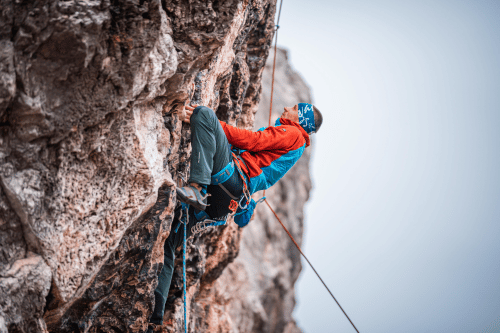Setting Adventure Therapy Goals: A Step-by-Step Guide for Personal Growth
Adventure therapy is a powerful treatment approach that integrates outdoor activities and natural settings with therapeutic principles to address mental health challenges and foster personal growth. By engaging individuals in physical challenges and group activities, this therapeutic approach encourages emotional healing, the development of social skills, and the cultivation of a growth mindset.
In this article, we’ll explore the multifaceted benefits, activities, and profound impact of adventure therapy programs while examining their role in mental health treatment.
What is Adventure Therapy?
Adventure therapy, also known as adventure-based therapy, or wilderness therapy, is a form of experiential therapy that uses outdoor environments and challenging experiences to help individuals address mental health issues and behavioral concerns. Unlike traditional therapy, it immerses participants in natural environments, combining physical and emotional challenges with therapeutic guidance.
This approach is designed for individuals of all ages and can address a wide range of concerns, including substance use disorders, anxiety, depression, trauma, and behavioral health issues.
Key Goals of Adventure Therapy
The therapeutic goals of adventure therapy focus on creating a supportive environment for individuals to overcome challenges, build resilience, and enhance emotional and social well-being.
1. Developing Effective Coping Skills
Participants learn problem-solving skills and strategies to manage stress and navigate emotional challenges, equipping them to handle difficulties in their daily lives.
2. Fostering Personal Growth
Through adventure-based activities, participants cultivate a sense of accomplishment and empowerment. Facing and overcoming fears during activities like rock climbing or wilderness expeditions strengthens their personal development.
3. Enhancing Interpersonal Relationships
Adventure therapy emphasizes teamwork and interpersonal skills. Collaborative activities build effective communication, trust, and a sense of community among participants.
Activities in Adventure Therapy
Adventure therapy incorporates a range of activities tailored to the needs of participants. These activities often challenge individuals physically, emotionally, and socially, fostering growth and healing.
1. Rock Climbing
This challenging activity encourages participants to trust themselves and their team while developing critical thinking and decision-making skills.
2. Wilderness Expeditions
Spending time in natural settings allows participants to disconnect from daily stressors and connect with the healing power of nature. These experiences can have a profound impact on mental clarity and emotional regulation.
3. Team-Building Exercises
Activities such as rope courses and problem-solving games encourage participants to collaborate, strengthening their interpersonal relationships and reinforcing common goals.
The Healing Power of Nature
Natural environments play a central role in adventure therapy, providing a backdrop for relaxation, reflection, and emotional healing. Research from the International Journal of Environmental Research and Public Health highlights that time spent in outdoor settings can reduce stress, improve mood, and enhance overall mental health.
The power of nature offers participants a unique opportunity to reset their minds, develop a sense of peace, and foster emotional resilience.
Benefits of Adventure Therapy for Mental Health
Adventure therapy addresses various mental health conditions, offering an effective approach for managing challenges such as:
1. Anxiety
The structured yet unpredictable nature of adventure activities helps participants confront fears and build confidence in their ability to manage uncertainty.
2. Depression
Physical activity, combined with meaningful engagement in outdoor therapies, can alleviate symptoms of depression and provide a renewed sense of purpose.
3. Trauma
The experiential and action-based nature of adventure therapy helps individuals process traumatic experiences in a safe and supportive setting, fostering emotional healing and recovery.
How Adventure Therapy Facilitates Personal Growth
Adventure therapy creates opportunities for participants to face challenges head-on, promoting self-discovery and empowerment.
1. Confronting Fears and Challenges
Participants are encouraged to embrace uncertainty and overcome obstacles, which instills a sense of empowerment and resilience.
2. Navigating Emotions
The therapeutic process often includes guided reflection, enabling individuals to understand and regulate their emotions effectively.
3. Cultivating Responsibility and Identity
By taking part in adventurous activities, participants develop a deeper sense of accountability and self-identity, which contributes to their personal relationships and overall well-being.
The Role of the Therapist in Adventure Therapy
Adventure therapists play a crucial role in designing, facilitating, and guiding activities to meet the unique needs of each participant. They ensure safety, encourage active listening, and foster an environment where individuals feel supported throughout their recovery journey.
How to Choose an Adventure Therapy Program
Selecting the right program involves considering factors such as:
- Qualifications of mental health professionals involved.
- Variety and safety of adventure therapy activities offered.
- Alignment with individual needs and personal goals.
Challenges and Considerations in Adventure Therapy
While adventure therapy offers numerous benefits, it’s essential to address potential challenges, including physical limitations, safety concerns, and individual preferences. Participants must also be prepared for the emotional demands of engaging in adventurous activities.
Conclusion
Adventure therapy offers a holistic approach to mental health and personal empowerment. By leveraging the healing power of nature and integrating experiential activities, it provides a supportive environment for individuals to overcome challenges, build life skills, and embrace a healthier future.
Whether addressing mental health disorders, behavioral issues, or substance abuse, this form of therapy serves as a powerful treatment approach that leaves a lasting impact on participants’ lives. For those seeking an alternative to traditional therapy, wilderness therapy offers a transformative path to healing, physical health, and growth.










